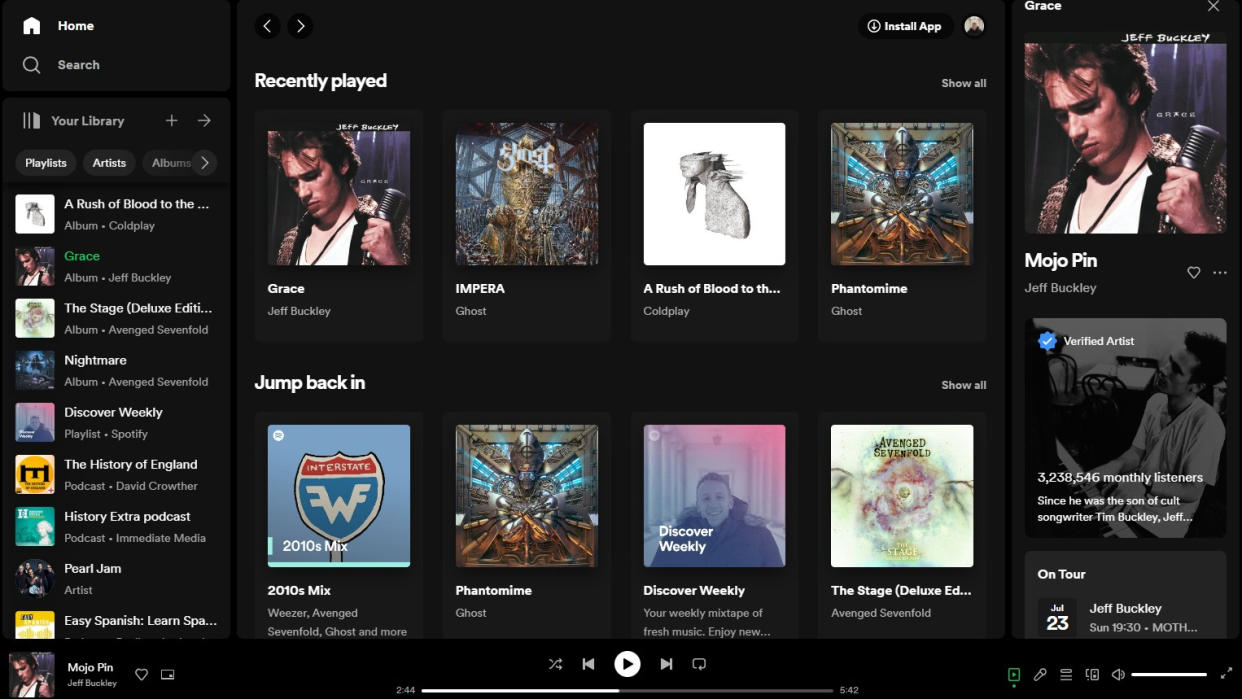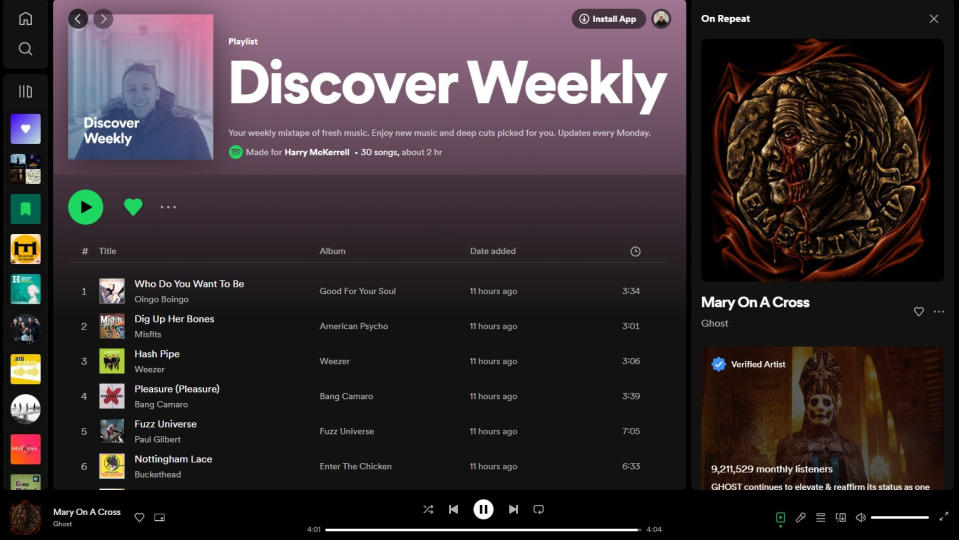I love Spotify but I’m desperate to see this one great feature added

There was a time when I thought I’d never have a Spotify account. It seems inconceivable now that I would resist what has become unequivocally the most used tile in my iPhone’s entire bank of handy applications, yet I remember when mainstream music streaming was enjoying its initial signs of blossoming in the early 2010s and thinking that this was a medium I’d like to avoid. After all, a large category of streamable tracks hasn’t got anything on the pleasure one takes from actually owning a bespoke collection of tunes all to oneself, I thought.
My listening sessions were tethered to the old formats, and by that I mean a handful of battered Killers CDs and an Apple Music library onto which much of my early collection of music (think Muse, Kasabian, Kaiser Chiefs, an inexplicable obsession with Tina Turner) was subsequently burnt. How quaint it must seem now to look back at this antiquated medium of listening, to see it as but as mere stepping stone to the server-reliant subscription model services we now all take for granted. Spotify, Apple Music, Tidal – the present, if not the future, is very much defined by the streaming titans.
That, ethical issues about artists being paid fractions of pennies for a stream of their hard-wrought works aside, is fine by me. I love Spotify (mostly), and while it may have taken a little time and effort to get used to the platform’s concept, layout and format, I love it as much as a hungry duck loves soggy bread in a damp pond. When the company’s annual Wrapped retrospective of my bygone listening year dropped in late 2022, I was informed that I was in the top 3% in terms of active Spotify users. That, to my mind, is perfectly healthy behaviour, even if being told that one of my most streamed tracks of that year came from the soundtrack to the strategy PC game Civilization VI.
There are things I’d want to see changed, obviously. I’ve never liked Spotify’s weird ‘Liking’ system, for instance, whereby you declare your affection for a track or artist and they, separately, will appear in their respective Liked categories in your library. I sometimes find the layout confusing and counterintuitive, and I still find myself more attuned to the Apple way of doing things than Spotify’s occasionally rather random, oftentimes ephemeral system of categorisation.
The song recommendation algorithm could also use a bit of work, too, especially when it latches on to a track as being indicative of your entire taste and then proceeds to flood your suggested “For You” playlist with music cut from the same musical cloth. Listening to a single Rammstein hit does not mean I’ve suddenly developed an insatiable appetite for Teutonic heavy rock, just as enjoying a single song from The Greatest Showman (Never Enough is fabulous) doesn’t mean I want to now be inundated with the entire oeuvre of Andrew Lloyd Webber, say. I certainly draw the line at anything from Cats.

These are gripes and grumbles, the streaming equivalent of your spouse leaving dirty socks in the laundry basket as opposed to embarking on a four-year affair with your in-house cleaner – enough to occasionally register on a bad day, but by no means sufficient grounds for a full-blown divorce. That said, I've recently been reminiscing about my old days of enjoying music courtesy of Apple’s old iTunes platform, and there's one feature that I felt made my experience feel more intimate, more personalised and, dare I say it, more enjoyable as a result.
Play counts. You weren't expecting that, were you? I don’t know if I was alone in this, but I was so obsessed with the concept of tallying up how many times I’d played each individual song in my digital catalogue that I actively ordered my library not by artist, song name or star rating, but by how many times each track had been played. Spotify has an On Repeat playlist in which around 30 of your current faves can be accessed in their own little hangout (you don’t want to know what’s currently shaming me on that list right now), but no numerical value. I’m desperate for the cold hard facts to see how many times I’ve played Ghost’s Spillways (a lot) or whether Gorillaz’s Pac-Man has enjoyed more outings than Tranz or Cracker Island. I want to know these things. I need to know them.
This isn’t just needless nerdiness, either, it’s a viable, even useful, way to enjoy your musical catalogue, and while there are dangers, there are also obvious perks, too. Sorting music via play counts is an organic process, it helps to give your library a natural and somewhat logical order based not only on arbitrary factors like the letters of the alphabet but on how much you actually listen, and therefore enjoy, certain music, pushing your favourites to the top of the pile while relegating those less engaging tunes to the bottom of the pit.
In doing so, your library starts to feel like your library, a reflection of your musical tastes over a given period of listening. There are pitfalls, of course, and bias towards your preferences is only heightened by having them easily accessible at the top of the pile (or currently housed in your On Repeat list), but in general, play counts give you a completely different perspective on your listening experience. The Latin alphabet is consistent no matter what. Your play counts, to be overly romantic, are a personalised reflection of who you are.
If Spotify has the capacity to tell you which songs you’re listening to the most, and (on desktops at least), in which order, surely it’s not beyond the realms of possibility to add personal play counts in to the mix? One of my biggest worries when it came to streaming music was the lack of personality, of a dissociation that came from a lack of true ownership. With the addition of one small, trivial feature, your streaming experience could truly begin to feel like it’s yours, and yours alone.
MORE:
Spotify's nice, but as a music fan I'll never love streaming
Read our five-star Spotify review
Disney+ is great but I wish it would fix these two really irritating issues
Sick of Netflix and co.? Here are four fantastic alternatives we'd recommend instead
